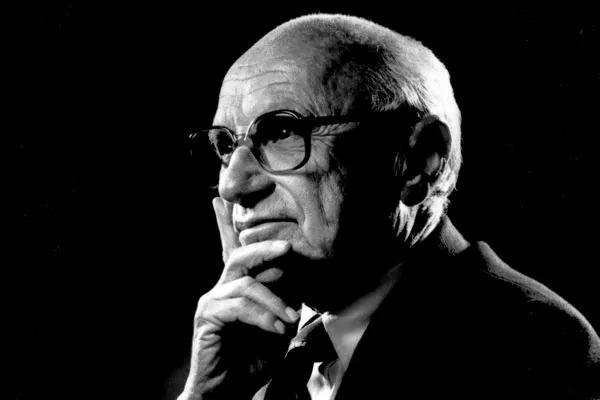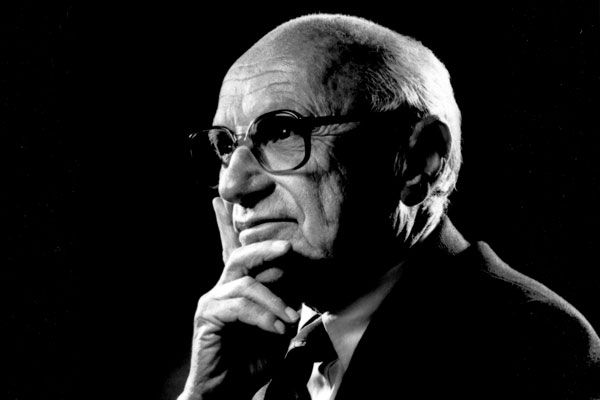Milton Friedman: Forced Union Dues Are ‘Almost Always a Symbol of Monopoly Power’

The Libertarian Case Against Right-to-Work Laws – Reason.com

Contrary to the claims of some current self-styled libertarian foes of state Right to Work laws, the late path-breaking libertarian economist Milton Friedman did not believe the law should wink at union monopolies or at compulsory-dues schemes specifically.
Most of the millions and millions of Right to Work supporters across America do not consider themselves to be libertarians. But Right to Work supporters, regardless of their general ideological stance, and libertarians have long had a lot in common. To start with, Right to Work advocates and libertarians overwhelmingly agree that a radical overhaul of federal labor law is desirable and necessary.
Leaders and members of the National Right to Work Committee advocate repeal of the provisions in the National Labor Relations Act (NLRA) and other federal statutes that force employers to recognize a union supported by a majority of front-line employees as the monopoly-bargaining agent of all such employees, including those who oppose unionization and would never voluntarily join a union. Right to Work leaders have also indicated that simply repealing the NLRA, without replacing it with any other federal labor statute, would be a worthy endeavor. Libertarians overwhelmingly concur.
Unfortunately, a vocal minority of libertarians over the years have chosen not to focus on their vast areas of agreement with Right to Work supporters and instead expended a lot of energy attacking Right to Work laws. Prohibiting employers from firing workers for refusal to pay dues or fees to a union unjustly interferes with employer rights, such self-styled libertarians claim.
To be logically consistent, such anti-Right to Work intellectuals should also support changing federal law to allow employers to fire employees for joining or financially supporting a union. But in practice, they almost never do explicitly advocate the legalization of “yellow dog” contracts.
Another problem for those who back compulsory union dues on “freedom of contract” grounds is that they often improperly invoke the late path-breaking libertarian economist Milton Friedman as an ally. Anti-Right to Work pundit Sheldon Richman did exactly this in the commentary linked above.
Friedman did in fact oppose Right to Work statutes, but not because he believed forced-unionism schemes should be legally tolerated. Rather, as pro-Right to Work libertarian and Friedman admirer Charles Baird has repeatedly pointed out, the author of Capitalism and Freedom believed that deals between employers and union bosses to force all employees to pay dues are restraints on trade that should not be permitted.
In this 1962 classic, Friedman wrote: “[A] closed [i.e., forced-union-dues] shop . . . is almost always a symbol of monopoly power.” Instead of Right to Work laws, he recommended “action to eliminate monopoly power regardless of the particular forms and manifestations it takes. [Monopolistic unionism] is an argument for more effective and widespread antitrust action in the labor field.”
Of course, as Baird pointed out in his portion of an article we coauthored for the Labor Law Journal in 2004, applying antitrust to unions would eliminate exclusive union representation and, ipso facto, forced union dues as well. In fact, applying antitrust to unions would constrain their ability to throw their economic weight around more than any policy change advocated by the National Right to Work Committee.
Right to Work supporters naturally disagreed with Friedman about the merits of Right to Work laws, but they had no disagreement with him about whether it should be legal to fire employees for refusing to bankroll a union. Richman and like-minded pundits should not pretend otherwise.

